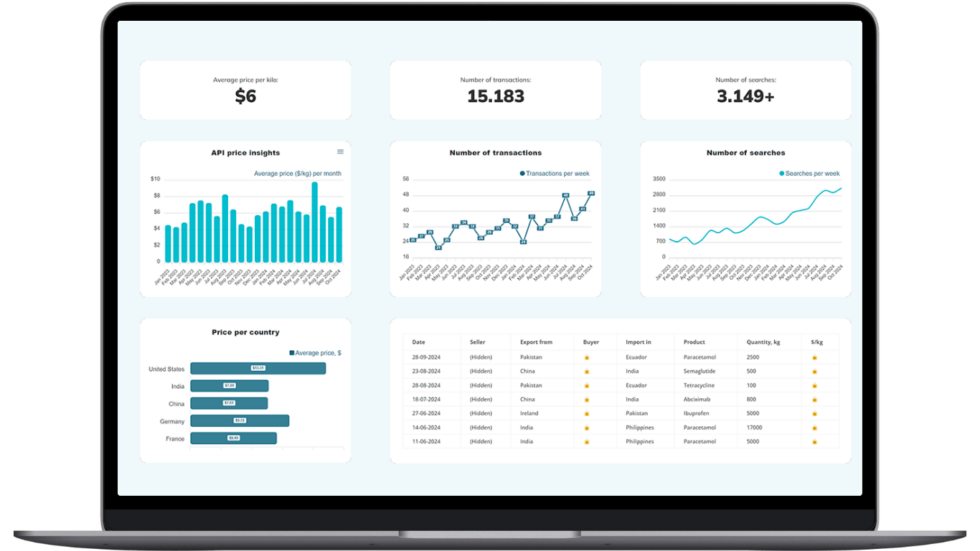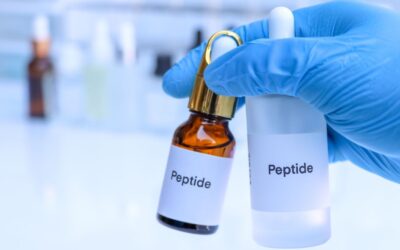
Su Keles | Posted on September 15, 2022
What are the differences between GMP and cGMP?
Certifications can cause a lot of stress and headache but remain highly rewarding. Our goal here is to give you a detailed overview of one of the most common certificates out there, so bear with us as we dive into the specifics of GMP ( Good Manufacturing Practices) and cGMP (current Good Manufacturing Practices) certificates. GMP is a system that businesses must follow to maintain a certain level of quality in their production processes; it defines the minimum standards a medicine manufacturer must meet.
This comprehensive process minimizes the chances of errors and contaminations. Having a GMP certification will mean that the entire process the manufacturer went through is accurate and precise. Think of it as a quality guarantee to put the client’s mind at ease. But don’t underestimate its importance if you don’t want to feel left out; most countries won’t allow pharmaceutical products manufactured outside GMP guidelines.
But what about testing the final product? Well, testing alone is not enough to guarantee quality. Testing is mainly done on a small sample of a batch. The manufacturer can test 200 tablets from a batch with millions of tablets in it; this generalization does not sound very comforting. So, drugs must be manufactured under the right conditions and practices.
While it stays confusing for most, it is crucial to determine the quality levels of pharmaceutical products. The certifications protect the patients from using an ineffective or even dangerous product. Who wants to be in the dark regarding health and medicine?
In the pharmaceutical industry, where quality is important, there is no need or chance to postpone getting informed about it. So rip the band-aid off and start reading!

Is cGMP better than GMP?
The difference between GMP and cGMP is so subtle that, most of the time, the two terms are used interchangeably. The tiny “c” that makes the difference stands for “current.” It means that the cGMP regulations require the manufacturer to use current technologies and stay up to date. Very logical indeed.
You might find yourself asking why the difference exists in the first place. Shouldn’t all manufacturers go for the cGMP guidelines? Well, GMP rules and regulations are constantly improving and updating with technology. It’s hard to keep up with the new developments, making the “c” (for “current”) differentiator necessary.
For a quick summary, we can say that while the GMP ensures manufacturers follow the fundamental requirements, cGMP ensures that they use up-to-date technology, focusing on the latest quality standards.
It would be best to remember that cGMP requirements were intended to be flexible, allowing each manufacturer to decide how to implement the necessary controls best. So we shouldn’t see the guidelines as a checklist but more like the minimum requirements the manufacturer has to meet to provide safe products.
Is cGMP less common than GMP?
Not every manufacturer can spend the same amount on the latest technologies. This leads to GMP being much more common. More than a hundred countries use GMP, while the numbers for cGMP don’t even reach a dozen.
We also shouldn’t forget that GMP applies to a larger scale, like different businesses that require high-quality products. At the same time, cGMP usually is limited to the actual process of manufacturing goods.
Is the cost of cGMP worth it?
Based on what you’ve read, you can assume that cGMP costs more than GMP. You would be right. The manufacturer needs to spend a considerable amount of money on getting technological advances.
However, opting for a cGMP can be more beneficial in the long term, and investing in advanced technology can become a significant competitive advantage. Also, cGMP can be more effective from a security and reliability perspective since it relies on state-of-the-art technology.
How to become GMP certified?
The process and requirements are pretty similar for all the different kinds of GMP certifications, with only a few specific differences. The guidelines offered by the FDA ( Food and Drug Administration), EMA (European Medicine Agency), and WHO (World Health Organization) are the most common ones. You should do detailed research to learn all the ins and outs of the stages. The process doesn’t vary much globally since most countries implement WHO or FDA/EMA guidelines. Let us break it down into steps to make it clearer:
- The manufacturer applies to the corresponding agency (FDA, EMA, WHO, etc.). This can be easily done online through their website.
- The big day arrives, and an auditor will come to the facility to start the inspections. They will perform what they call “a gap analysis,” which measures the difference between your facility’s actual and ideal situation.
- This gap analysis consists of a few analyses of different functions and parts of your facility. The auditor will start by evaluating the quality system, the computer system, the equipment, and finally, the workers at the facility ( and other aspects such as labeling and complaints).
- The auditor writes the report based on the previous evaluations. The GMP certificate is valid for three years if the manufacturer gets a pass. If the facility still has some stuff to improve, a second audit will occur where improvements can be made.
Paying attention to whether these documents are clearly written and understandable is crucial. It’s always better to avoid any confusion or mistakes! We know it sounds like a lot, but it is perfectly achievable with the right mindset; manufacturers should ensure the required Standard Operating Procedures (SOPs) in place.
We hope this article clarified things a bit better. If you want more information about other certifications, check out our blog.
Are you looking for suppliers with GMP certificates? Make sure you select the GMP filter on Pharmaoffer to contact suppliers with GMP certificates.

Make Smarter API Decisions with Data
Access exclusive insights on global API pricing, export/import transactions, competitor activities and market intelligence.
FAQ
What Are GMP and cGMP Certifications?
GMP (Good Manufacturing Practices) and cGMP (current Good Manufacturing Practices) are certifications that establish quality standards for the pharmaceutical industry. GMP sets basic requirements for the manufacturing process, while cGMP includes the use of current technologies to meet quality standards.
How Are GMP and cGMP Different?
The key difference between the two is the emphasis on 'current' technology in cGMP. cGMP standards are designed to evolve with technological advancements, making it flexible and future-oriented. On the other hand, GMP is more fixed and focuses on fundamental requirements.
What Agencies Regulate GMP and cGMP?
The most common regulatory agencies are the FDA (Food and Drug Administration), EMA (European Medicine Agency), and WHO (World Health Organization).







Check out all other blogs here!